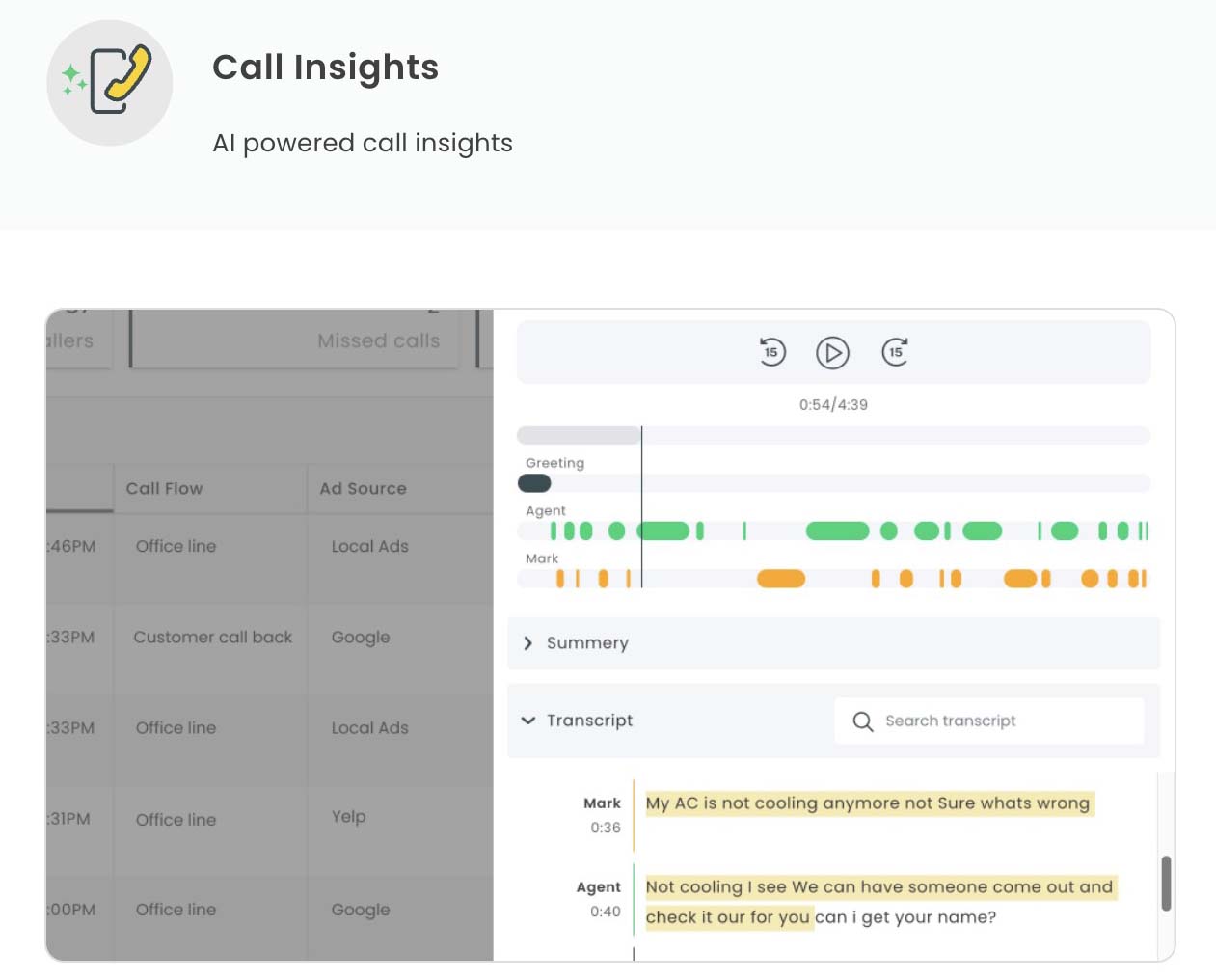It may not be able wield a broom just yet, but artificial intelligence (AI) is fast becoming a jack-of-most-trades for HVAC contracting businesses.
AI can be employed as a dispatch manager, a job estimator, a business coach, a marketing assistant, even a bill collector — and more. At one field-service software company that incorporates AI, Workiz Inc., the goal is to “automate everything that does not involve a wrench,” said Didi Azaria, the CEO.

Didi Azaria of Workiz
“This guiding principle ensures that our solutions free HVACR contractors from administrative burdens, allowing them to focus on the hands-on, technical work that requires their expertise,” Azaria said.
The newer forms of ready-to-use AI have captured the public’s imagination, and HVAC contractors would do well to get into the game if they haven’t already, experts say.
“Start learning what this can do for you. Spend 20 minutes a week, 30 minutes a week,” said Joshua Crouch, the founder of Relentless Digital, a marketing firm for field-service businesses. “Don’t bury your head in the sand.”
Office Assistant
Companies like Workiz and ServiceTitan offer programs that use AI for a variety of office tasks common to a contracting business, from taking customers’ information when they call, to scheduling and dispatching technicians to respond to calls in an effective way that best suits the contractor, to analyzing those calls and finding additional opportunities in them.
At Workiz, the AI in its Call Insights tool transcribes and analyzes customer calls and pulls out vital information from each, such as the job type, job pricing, the customer’s address, and any customer inquiries. It also highlights important points in the calls, summarizes them, and suggests follow-up, such as opportunities for upselling, customer concerns that need to be further addressed, and issues that might call for employee training.

Click to enlarge
STREAMLINED SERVICE: A screenshot of a conversation being monitored with the Workiz Call Insights tool, which transcribes and analyzes customer calls and pulls out vital information from each. (Courtesy of Workiz)
“This helps HVACR contractors quickly understand customer needs and respond appropriately, saving time and ensuring no opportunities are missed,” Azaria said.
Workiz also uses AI for scheduling optimization and smart messaging, and in a tool, Genius Leads, that automatically processes orders for warranty work and other sources of leads, integrating them directly into the contractor’s customer relationship management (CRM) software, Azaria said.

Anmol Bhasin of ServiceTitan
ServiceTitan’s automated dispatch tool, Dispatch Pro, uses AI to not only map out which technician is tackling which job, but to do so in a way that’s customized for each contractor’s preferences, said Anmol Bhasin, the company’s chief technical officer.
For example, Bhasin said, maximizing margins might be a priority for one contractor on a given day, while another might want to minimize the time technicians spend on the road, and a third might want to complete as many outstanding service calls as possible that day. In each case, he said, the Dispatch Pro algorithm can be customized so that its outcomes provide an optimal path for achieving a specific goal.
Add features such as monitoring calls, coaching employees, and suggesting financing options when a customer mentions that possibility, and AI turns a contractors’ office employees into “superhumans,” Bhasin said.
“Basically, with the same capacity, we can actually save capacity — human labor available, or the human bandwidth available,” he said. “We are now able to do far more than historically possible.”
ServiceTitan’s AI can even work on accounts receivable, writing reminder emails to customers with outstanding invoices. The messages can vary in tone based on factors like the amount owed and the contractor’s relationship with that specific customer. The customer with a $5,000 overdue bill might get an email with a sterner tone than one with, say, just $500 due, Bhasin said.
Marketing Tool
AI is a game-changer when it comes to marketing, said Relentless Digital’s Crouch.
Relentless Digital offers AI that can reply individually to online customer reviews, something marketing experts say is an important part of a company’s marketing efforts. The replies can be written in draft mode, Crouch said, and reviewed by a human before they’re sent.
Replies are genuine and save contractors time, Crouch said. The tool doesn’t respond to one- and two-star reviews, which typically call for management follow-up, he said.
Relentless Digital’s AI can also help in website design and management, Crouch said, by writing appealing content about the communities a contractor serves. Having a web page dedicated to each community an HVAC company serves increases the likelihood that that company will turn up near the top of the results in an “HVAC contractors near me” internet search, Crouch said. “Google likes that stuff,” he said.
For example, if a community is known for its tree-lined streets, good schools, and outstanding museum, AI can find those declarations on the internet and incorporate them, in an appropriate voice, into the copy on a contractor’s web page for that community.
“We usually see some quick organic growth in those towns and cities that we target,” Crouch said.
Workiz and ServiceTitan tools can be used in marketing, too.
Workiz’s Call Insights, for example, can spot customer trends and prompt contractors to act on them.
“If multiple customers inquire about eco-friendly options, Call Insights can flag this trend, enabling the business to adapt its offerings and train staff to highlight these options, leading to increased sales and customer satisfaction,” Azaria said.
ServiceTitan has a job value-prediction function that can be applied to marketing, Bhasin said. It can spot geographical areas, say by ZIP code, in which there are higher average customer spends, enabling the contractor to better target marketing efforts and perhaps spend more in areas where there’s the likelihood of a greater return.
One Contractor’s Story
Zachary Kays is the software administrator at Intelligent Design Air Conditioning, Plumbing, Solar & Electric, a contractor in the Tucson, Arizona, area. He was brought on about a year and a half ago to optimize the company’s use of ServiceTitan, and said he spends about 80% of his work time on it, with some marketing work making up the rest.
Kays said he’s moved Intelligent Design’s ServiceTitan usage score from a 68 to nearly 93, meaning his company is using ServiceTitan more effectively than almost 93% of other users. Intelligent Design has a large suite of ServiceTitan products, he said, including Dispatch Pro, Scheduling Pro, and Marketing Pro, which employees call “AI is pretty much in everything,” he said.
ServiceTitan, Kays said, made it easy to learn its tools. “They’ll teach you everything you need to know,” he said.
ServiceTitan has helped increase the number of reviews left by customers, which are vital in internet search algorithms. So far in 2024, Kays said in early July, Intelligent Design had 446 reviews, compared to 418 in all of 2023. “We’re already on track to double the number of reviews,” he said.
Intelligent Design also uses ServiceTitan AI to respond to reviews, making each one a little bit different, a feature that boosts the company’s standing with Google. Kays approves the reviews before hitting send, but said they’re almost always spot on.
“It saves you a lot of time, but it’s also not going to do anything you don’t want it to do,” like give away company secrets, Kays said.
AI can also generate a summary invoice for each completed job, Kays said. “That’s a very nice feature, and it saves money,” he said.
What about IoT?
The Internet of Things (IoT) — the way devices are connected and communicate with each other — often goes hand in hand with AI.
ServiceTitan’s Fleet Pro, a fleet-management platform, has such a tool, said Bhasin, an AI video camera that goes inside a work truck to record a technician’s activities, alerting contractors to risky behaviors. The company said Fleet Pro can reduce accident risk by nearly 75%.
IoT and AI are also at work, Workiz’s Azaria said, when a sensor on an HVAC component detects the component is not working right and the customer is automatically notified.
“When an IoT-enabled HVAC item requires service, the automation system can trigger a schedule link to the customer, allowing them to book a service appointment without the need to speak to anyone,” Azaria said. “This integration simplifies the service process, improves response times, and enhances customer satisfaction by making it easy to address issues as they arise.”
Crouch, at Relentless Digital, said it’s difficult to keep up with the changes in AI technology but well worth the effort.
“It’s a paradigm shift,” he said. “It isn’t just a new toy.”








